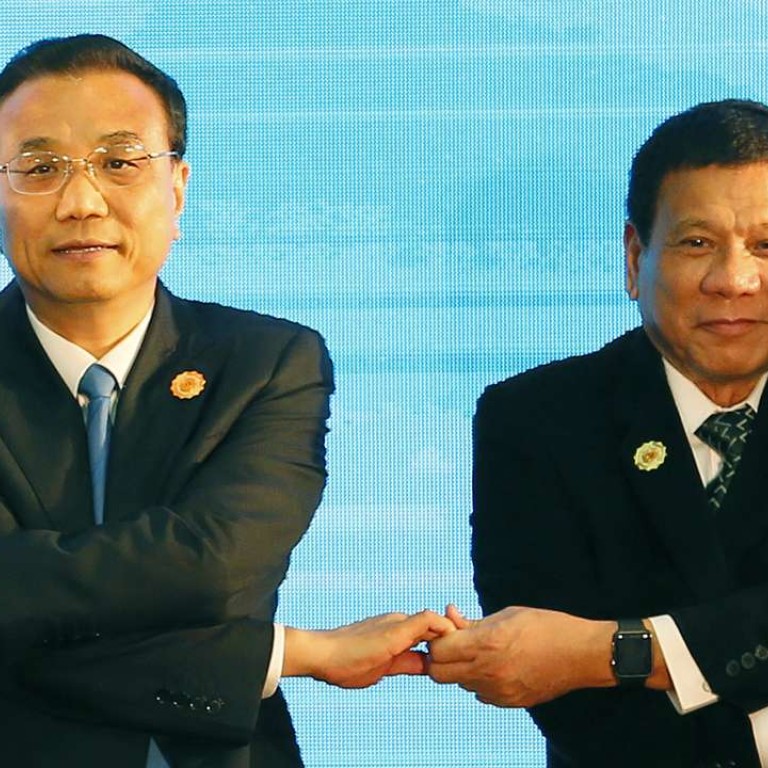
Philippines open for business with China, says finance minister
Opportunities for the two countries to cooperate on infrastructure, says Carlos Dominguez
The Philippines’ new government plans to court Chinese investment to fund an ambitious infrastructure programme, the latest sign of warming ties between the two nations that have been at loggerheads over territorial claims in the South China Sea.
“The last administration hardly spoke to them,” Finance Secretary Carlos Dominguez said in an interview in the World Bank’s headquarters in Washington on Friday. “Now we are going to talk to them.
“It’s time for us to lower the tensions,” he said. “You know the Chinese, they don’t like to lose face. Just as long as they don’t lose face it’s OK to continue arguing with them.”
Since sweeping to victory in May elections, Philippine President Rodrigo Duterte has raised eyebrows with repeated attacks on traditional ally the US and by calling for greater cooperation with China. Southeast Asian nations had in the past pushed for a united front against China, which prefers that disputes be settled through one-on-one talks.
That’s going to be a big source of funding for infrastructure spending
In July, an international tribunal ruled that China’s claims were unlawful in a case brought by the Philippines – a decision Beijing refused to recognise.
China has been expanding its regional clout through investing in infrastructure projects and plans to revive an ancient trading route stretching from Asia to Europe dubbed “One Belt, One Road”.

On the wider economy, the finance official played down investor concerns. The peso is trading near a seven-year low while stocks had the biggest outflow in a year in September, prompted in part by Duterte’s expletive-laden outbursts.
Among the targets, US President Barack Obama, who Duterte warned “you can go to hell” and that he may eventually “break up with America.” He has also told off both the European Union and the United Nations for their criticisms of his violent anti-drug campaign that’s left more than 3,000 people dead.
Dominguez has said economic policies have been clear and consistent. S&P Global Ratings last month warned of “rising uncertainties surrounding the stability, predictability, and accountability” under the new government.
Gross domestic product increased 7 per cent in the second quarter from a year earlier, data in August showed, close on the heels of India’s 7.1 per cent growth. The US$292 billion economy is forecast to expand 6.4 per cent this year, the quickest pace in Southeast Asia, according economists surveyed by Bloomberg.
In the same interview, Bangko Sentral ng Pilipinas Governor Amando Tetangco also hosed down any concerns and said he sees little need to change monetary policy in the near term.

